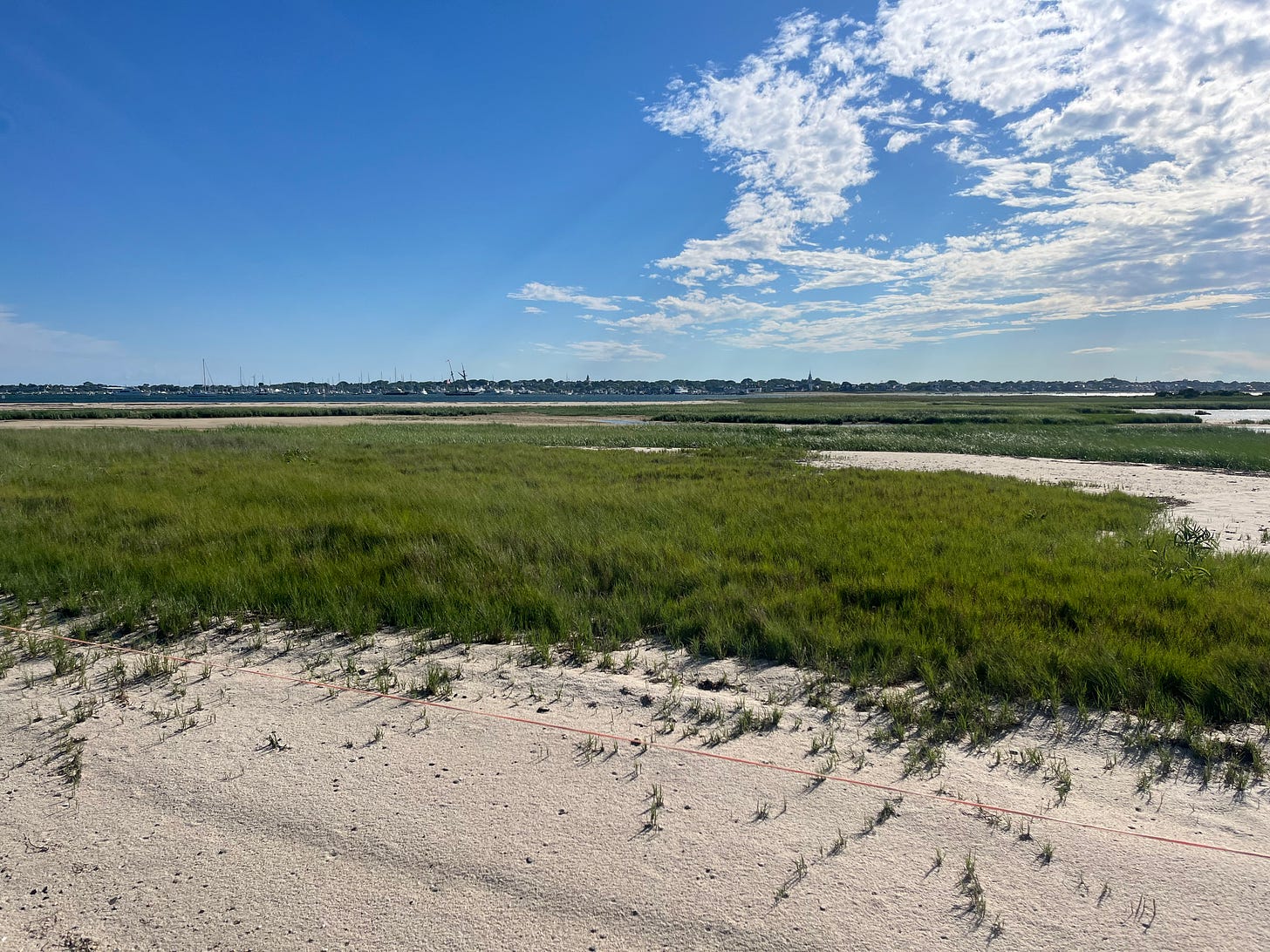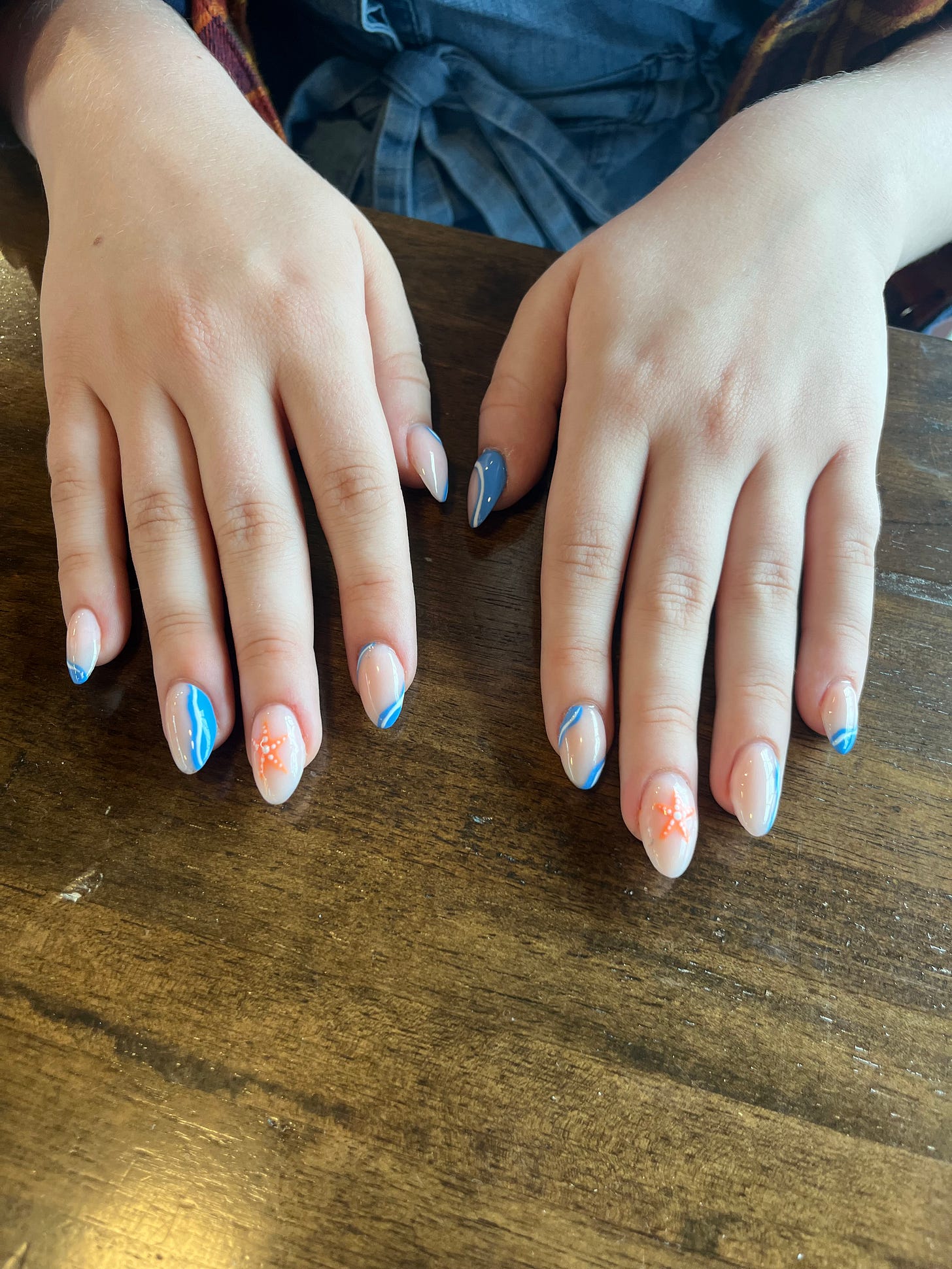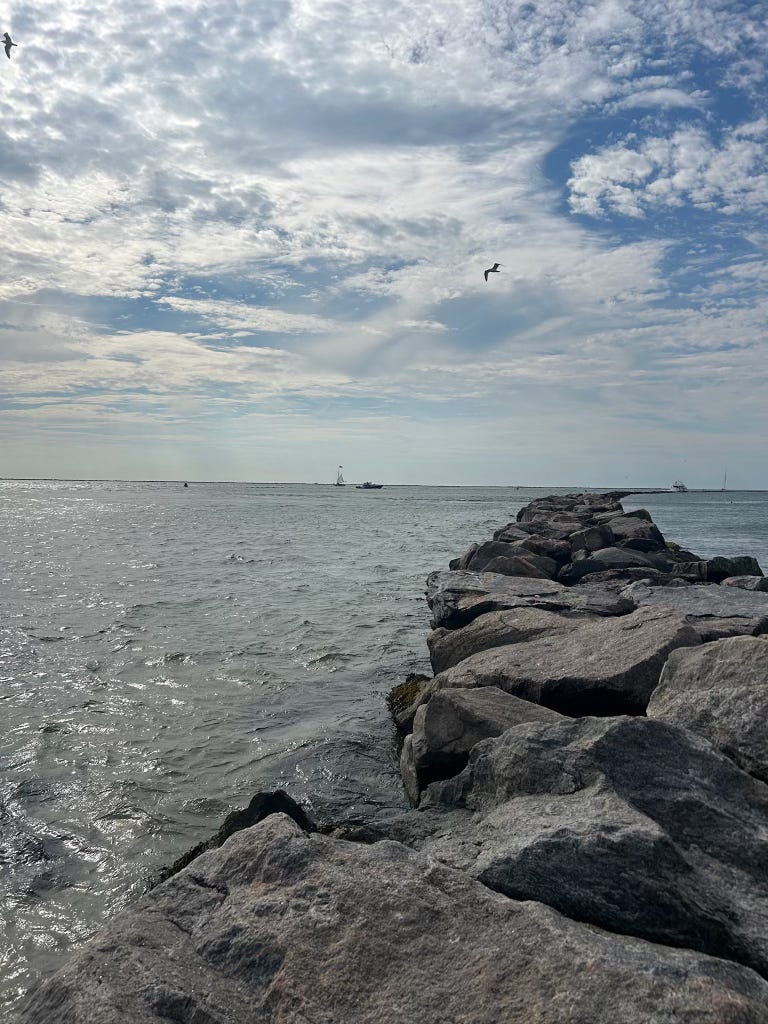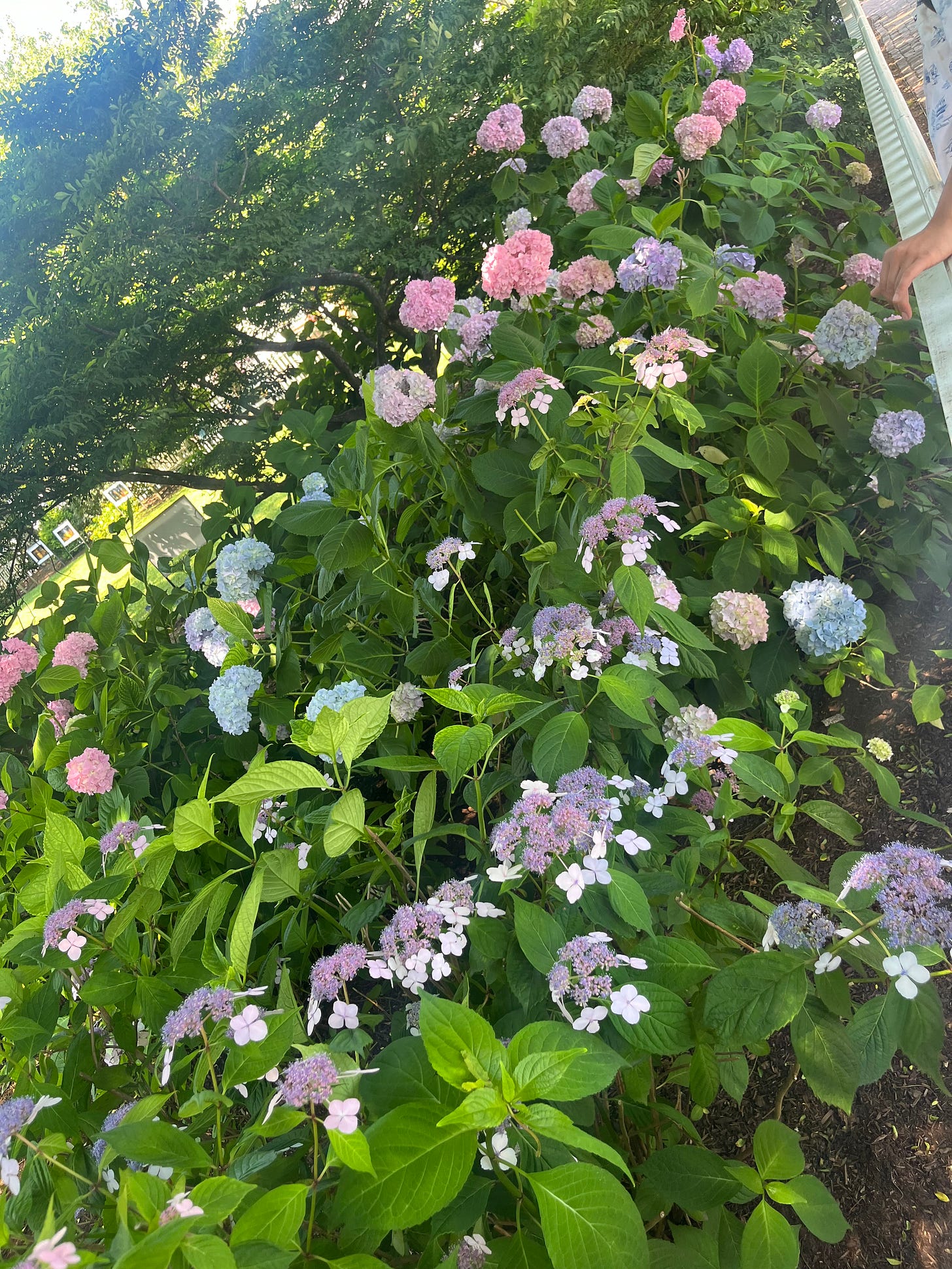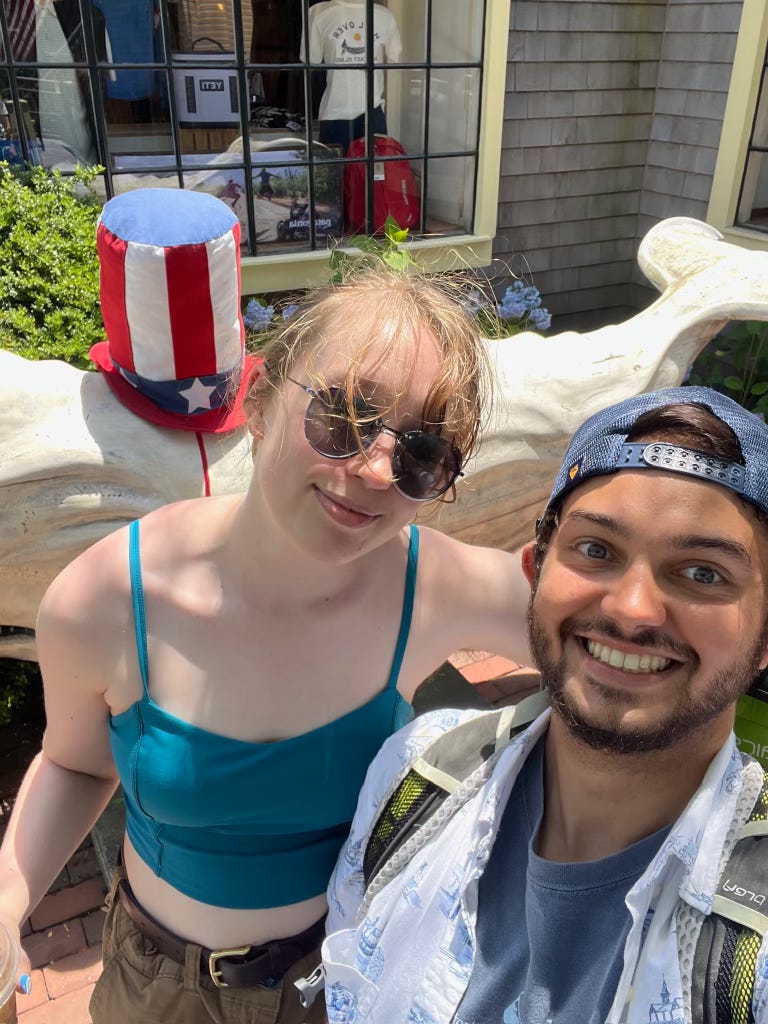In the tradition of troubled authors that came before me, I took a short vacation to gather my thoughts, especially in the wake of coming face to face with the first half of Glee Season 3. Below are images from my trip and scattered observations from Episodes 45-55. Because of the images, the post will be truncated over email. To read the full thing, check out the post on Substack!
Livin La Vida Loco Parentis
At the end of Season 1, when Finn is reflecting on what Glee Club gave him, he says that before Glee Club, he “didn’t have a father”. Is this in reference to Burt, his mother’s boyfriend who was introduced by another Glee Clubber? Is it Will Schuester, who was the first adult he went to (and cried to!) when he found out his girlfriend was pregnant? It’s unclear. Both had been symbolically framed as a type of father figure for him.
Will, specifically, has spent the show floating between the figures of “teacher/mentor”, “father”, and “older brother” interchangeably. The circumstances of the week define their framing more than anything else. Despite this vagueness, or perhaps because of it, in Season 3 when Will asks Finn to be the best man in his wedding, it feels wrong. Finn being the best man for his mother in her Season 2 wedding makes sense, because they’re family. Will’s decision here is ridiculous for many reasons, not in the least because Finn is still his student. Good luck giving your best man a D on his final, Schue!
I can imagine a writer pitching this under the banner of the father/son symbolism from the seasons before, but they drank from a poisoned well. Glee’s approach to parenting from a narrative perspective is all kinds of confusing, and has been since the beginning.
The first issue is the genre. When a minor is in school, their guardianship is temporarily taken up by the institution. This is called “in loco parentis”, and aside from being a crazy thing for your English teacher to point out when he’s upset with the class, it’s also a tricky issue for the high school genre of media. If your story takes place in high school, that means two separate sets of adults that are weighing in on the freedom and experience of your characters.
In the interest of keeping the action localized on McKinley’s campus, Glee puts more weight on the teachers. Parents are usually spoken of, not seen. We watch Rachel Berry, the main character, get engaged before we meet her dads. Two parents rise from the pack in the form of Burt Hummel and Carole Hudson, who date and marry during Seasons 1&2. They don’t have independent plotlines, instead appearing in conjunction with the plots of their kids.
Shelby Corcoran is the other exception. She is Rachel’s biological mother who gave her up for adoption, and also coaches the biggest/baddest rival show choir. She enters the show for a half-season stint in Season 1, then again in Season 3. Shelby tangles the family tree branches by then adopting a baby from the Glee Club, and then dating(?) another member of the Glee Club. She also made out with Will Schuester. Point being: Shelby is not a parental figure as much as she is a plot tornado that will occasionally sweep through the show.
Other parents trickle in via cameo, like the one where we discover that Blaine Anderson’s mom is named Pamela. They make one/two episode appearances, but they’re few and far between. Mike and Quinn are our examples of this model.
For comparison, the teachers of Glee are another small cast, usually spanning 3-6. Sue, Will, and Emma are the mainstays, and others weave in and out. The difference is that we see a lot more of them. They have their own plots, both with each other and with students. The most screentime Shelby Corcoran ever clocked was when she was a substitute teacher at McKinley.
An effect of this is that teachers often get awkwardly subbed into parental positions. For example, if a student is in trouble with the principal, it’ll usually be Will at their side defending them instead of a parent. This is a time-saving measure for the high school drama. Why cast and write a whole new set of parents when Will is in loco parentis already?
The End of Glee
Because this is senior year, the End of Glee is becoming startlingly prescient. If you enjoy playing script doctor, or are just a Gleek with an opinion, I *need* to hear from you. How do *you* think Glee should have ended? I want to talk to Gleeks. I want you to introduce me to your friends who are Gleeks. I want to actually get a sense from the fans and viewers of what they think about this. I wonder what common threads I’ll see across the feedback, or what the most off-the-wall interpretation is. Please fill out this form, and share with your Gleek friends. Respondents are not required to have seen the entire show to give their feedback!
Celebrity Couples on Screen
While on vacation this last week, I watched “Mr. and Mrs. Smith”, the classic Jolie/Pitt action romance that introduced the couple to each other. The pair are now embroiled in an incredibly juicy custody battle over their vineyard, but when the movie came out, the big news was their coupling (and its timeline in relation to Jennifer Aniston and Brad Pitt’s divorce). Undoubtedly, the fact that Angelina Jolie and Brad Pitt actually fell in love changes the way we watch this movie.
The conditions of our viewership are going to leave deep impacts on our impression of the media. When we watch “Mr. and Mrs. Smith” with the knowledge of the actors’ relationship, for example, we may feel that we are watching true, organic chemistry. The truth of that can be examined on its own time, but that impression changes the way that we categorize and appraise the media in front of us.
Viewership often involves the construction of a meta-narrative, collecting all the other things we know about the body of work that exists outside its exact text. Incorporated texts can span from celebrity gossip, reviews/interviews, memes, and all sorts of other offshoots. As I watched the movie, I couldn’t help but relate it back to Glee.
Glee’s most spotlighted couple from Season 1-4 is mirrored by the offscreen relationship. Finn and Rachel dated on the show, and Cory Monteith and Lea Michele dated in real life. Does this change the way we watch the show?
At the very least, I think it’s a good check-in point for something I mentioned in my article about Rachel: Actor/Character Bleed. When the lines between the two are blurred, things get more complicated. As viewers, the emotions get more tangled. When the actor is caught fucking up, we regard the character with more suspicion. When two actors get together offscreen, we look for signs of chemistry between them.
Glee Voice
Let’s talk voice.
I’ve been told (and personally believe) that I talk like Glee. There’s a certain cadence, verbosity, and humor that lines up with the way the show is written. It’s probably because I ingested Glee at a really formative time in my life as a writer. I have an investment in the voice of the show, its rhythms and flows, especially when multiple characters are in the room.
The issue of character voice is newly important in my rewatch, as I’ve embarked on the first half of Season 3. This marks the point where episodes have writers outside the triangle of Ryan Murphy/Brad Falchuk/Ian Brennan, which means that they are now attempting to both capture and expand the voices of the characters.
If there’s anything that fanfiction taught me, it’s that capturing a voice written by someone else isn’t necessarily easy. Nuanced mimicry is not for the faint of heart.
Lucky for the writers of Glee, I think they get to get away with anything, because it’s in-character if they wrote it. Glee canon purists are few and they are not powerful. The writers room has a kind of “it’s legal if the president does it” swagger that I envy. However, from my seat, I thought that this makes for good exercise. How do writers actually take on that vocal challenge? How do we capture the diversity of speech patterns, especially across an ensemble?
Some voices are easy. For example, I think that Yoda from Star Wars has an incredibly easy voice to mimic, because its rules are glaring and obvious. You can reasonably “Yoda-fy” any sentence with little thought. Now, we apply that to a character whose speech patterns are much more grounded and familiar to us.
Here’s something that I’ve discovered about the voice of Glee in the last few weeks: Sue’s voice is hard to capture.
It’s clear that there’s something distinct about her phrasing, if not only because she has catchphrases. She’s probably one of the most recognizable parts of the show to outsiders, and her strange, easily meme-able one-liners are a part of how she’s known. So how do you write a Sue one-liner?
Let’s look at a few, plucked from a listicle:
''I will no longer be carrying around photo ID. You know why? People should know who I am.''
''I'm all about empowerment. I empower my Cheerios to live in a state of constant fear by creating an environment of irrational, random terror.''
''I am going to create an environment that is so toxic, no one will want to be part of that club. Like the time I sold my house to a nice young couple, and I salted the earth in the backyard, so that nothing living could grow there for 100 years. Know why I did that? Because they tried to get me to pay their closing costs.''
''I may buy a small diaper for your chin because it looks like a baby's ass.''
What did we learn? Nothing? Awesome. How do we fashion something that sounds like this? Something that fits in this oeuvre of one-liners?
Step one is to begin with an “I” statement. In Exhibit #4, it’s not that Will Schuester has a cleft chin. It’s that she is going to do something about it. Let’s craft an example where she’s upset with Jenny about her decision to put truffle salt on her fries. Following these one-liner rules, the party simply can’t stop at “you’re crazy for that”. It needs to impact Sue.
Step two is ACB logic. Statement one, unrelated statement three, and then the linking explanatory (but still humorous) concept. The B statement can occur after a little begging of the question, see Exhibits #1 and #3. Using this information, let’s craft a little something based on this truffle salt disgust:
“I smell failure, grief, and whiskey. It’s the truffle salt. My truffle sniffing pig wasn’t just an alcoholic, he actually managed to miss the apple-sized truffles in my backyard. I had to sniff them out myself.”
This is still a bit off-mark. Sue Sylvester wouldn’t admit to having a fail-pig, nor would she get this wordy. My Sue voice is still a work in progress. Any writers of Glee who have divined other Sue-speak rules are required to reach out to me. Let’s get this pitch perfect.
To conclude, I feel the need to further link the photos I shared from my vacation with the half-season of television that I watched. This post was supposed to go out before the trip, but I took the week to reflect instead of rushing anything out.
What did I find upon reflection? Not much. I’ve crystallized some of my smaller S3 opinions (“I Am Unicorn” was significantly better on this rewatch, Rachel Berry’s canonical status as a Sagittarius makes no sense at all, etc.), saw some gorgeous views, and ate good food. No astounding epiphanies. All this is probably for the best- I’m not expecting epiphanies until I hit Season 5.
As a reminder, please look into that End of Glee form! I want to hear from all the Gleeks..


